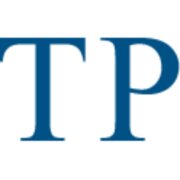Best Trademark Lawyers in Huai Khwang
Share your needs with us, get contacted by law firms.
Free. Takes 2 min.
List of the best lawyers in Huai Khwang, Thailand
Thailand Trademark Legal Articles
Browse our 2 legal articles about Trademark in Thailand written by expert lawyers.
- Understanding Trademark Laws in Thailand
- Despite several coups, Thailand's economy has remained strong and vibrant and has long attracted both local and international businesses from all around the world. As companies expand and enter fresh markets, the value of intellectual property (IP) becomes even more evident. Since it maintains a company's brand identity and safeguards... Read more →
- IP Protection in Thailand: A Comprehensive Guide for Businesses
- As Thailand grows into an important business place in Southeast Asia, companies must protect their ideas and new innovations. Thailand has laws and agrees to follow international rules that help you keep your valuable ideas and innovations safe. In this guide, we will learn about protecting your creations, innovations, and... Read more →
About Trademark Law in Huai Khwang, Thailand
Trademark law in Huai Khwang, a district of Bangkok, is governed by the broader framework of Thailand's intellectual property (IP) legislation. Trademarks are distinctive symbols, words, logos, or combinations thereof that distinguish goods or services of one entity from another. The Thai Trademark Act protects registered trademarks and aims to prevent unauthorized use, counterfeiting, and infringement. In Huai Khwang, as part of Bangkok, local businesses and individuals benefit from national legal protections, procedural guidance, and enforcement mechanisms provided by the Department of Intellectual Property (DIP) under the Ministry of Commerce.
Why You May Need a Lawyer
Several common circumstances can prompt the need for a trademark lawyer in Huai Khwang. Registering a new trademark requires careful legal compliance to avoid refusal or unintentional infringement. If you are expanding your business, rebranding, or launching new products, legal advice can help secure your brand identity. Legal help is also essential when someone is suspected of using your trademark without permission, if you have received a notice of opposition during registration, or if you are facing a trademark dispute or litigation. Navigating international trademark protection, licensing, and assignment agreements are also situations where professional legal guidance is crucial.
Local Laws Overview
Trademark law in Huai Khwang follows the Thai Trademark Act B.E. 2534 (1991), with subsequent amendments. Key aspects include:
- Trademarks must be distinctive, not descriptive or generic, and not identical or confusingly similar to existing marks.
- Trademarks must be registered with the Department of Intellectual Property for full legal protection.
- Applications are subject to examination for distinctiveness, prohibited elements, and potential conflicts with existing marks.
- Once registered, the owner has exclusive rights in Thailand for a period of 10 years, renewable for additional 10-year periods.
- Trademark infringement is a civil and criminal offense, with legal remedies including injunctions, damages, and seizure of counterfeit goods.
- Enforcement is underpinned by local courts, the police, and collaboration with customs authorities for cross-border issues.
- Legal procedures and documentation are mainly in Thai, making local legal assistance especially valuable.
Frequently Asked Questions
What can be registered as a trademark in Thailand?
A wide range of signs can be registered, including words, logos, images, signatures, colors, combinations, and shapes, as long as they are distinctive and not prohibited by law.
Do I need a local address to register a trademark in Huai Khwang?
Yes, foreign applicants must appoint a local agent or have a local address in Thailand for correspondence. Residents of Thailand can apply directly.
How long does it take to register a trademark?
The application and examination process can take approximately one year or longer, depending on whether any objections or oppositions are raised.
Is trademark registration in Thailand valid internationally?
No, a Thai trademark registration provides protection only within Thailand. Separate applications are necessary for protection in other countries.
Can I transfer or license my trademark?
Yes, trademarks can be transferred or licensed, but any such agreements should be properly documented and registered with the Department of Intellectual Property to be legally effective.
What should I do if my trademark is infringed?
Contact a trademark lawyer immediately. Options include sending a cease-and-desist letter, initiating civil or criminal action, or requesting administrative enforcement through relevant authorities.
What risks are there if I use an unregistered mark?
You risk being unable to enforce your rights or defend your brand effectively if someone else registers a similar or identical mark.
Are there regular maintenance requirements for my trademark?
Trademark owners must renew their marks every 10 years and should monitor and enforce their rights to prevent dilution or loss of distinctiveness.
Can marks be refused registration?
Yes, marks can be refused if they lack distinctiveness, are identical or similar to existing trademarks, or fall into excluded categories under the Thai Trademark Act.
Where can I find official information or forms?
Official forms and guidance are available from the Department of Intellectual Property, Thailand, along with updates on procedures and fees.
Additional Resources
For further information or assistance, consider the following local resources:
- Department of Intellectual Property (DIP) - The central authority for all trademark matters in Thailand.
- Ministry of Commerce, Thailand - Oversees trademark policy and regulation through DIP.
- Huai Khwang District Office - Local administrative office for general business matters.
- Thai Industrial Standards Institute - May provide guidance on certain categories of marks.
- Local law firms and legal clinics - Offer consultations, filing services, and enforcement help.
Next Steps
If you need legal assistance with any trademark matter in Huai Khwang, consider these steps:
- Identify your specific needs, such as registration, enforcement, or licensing.
- Gather all relevant documents, such as proof of use, business registrations, and representations of your mark.
- Contact a local trademark lawyer or legal service provider experienced in Thai IP law.
- Consult with the Department of Intellectual Property or visit their local service desk for practical guidance.
- If facing urgent issues or disputes, seek legal advice immediately to avoid rights loss or escalated conflict.
- Stay informed about deadlines for renewal and be proactive in monitoring unauthorized use of your trademark.
By following these steps and utilizing available resources, you can navigate trademark matters in Huai Khwang, Thailand with greater confidence and legal protection.
Lawzana helps you find the best lawyers and law firms in Huai Khwang through a curated and pre-screened list of qualified legal professionals. Our platform offers rankings and detailed profiles of attorneys and law firms, allowing you to compare based on practice areas, including Trademark, experience, and client feedback.
Each profile includes a description of the firm's areas of practice, client reviews, team members and partners, year of establishment, spoken languages, office locations, contact information, social media presence, and any published articles or resources. Most firms on our platform speak English and are experienced in both local and international legal matters.
Get a quote from top-rated law firms in Huai Khwang, Thailand — quickly, securely, and without unnecessary hassle.
Disclaimer:
The information provided on this page is for general informational purposes only and does not constitute legal advice. While we strive to ensure the accuracy and relevance of the content, legal information may change over time, and interpretations of the law can vary. You should always consult with a qualified legal professional for advice specific to your situation.
We disclaim all liability for actions taken or not taken based on the content of this page. If you believe any information is incorrect or outdated, please contact us, and we will review and update it where appropriate.











